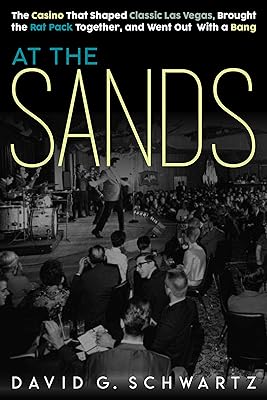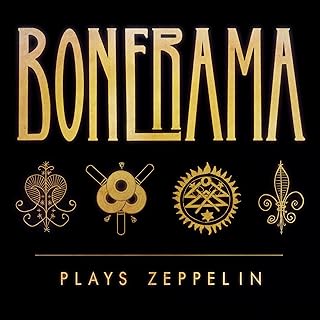Oferta de
At the Sands: The Casino That Shaped Classic Las Vegas, Brought the Rat Pack Together, and Went Out with a Bang (English Edition)
Mais ofertas de Generico
por
R$ 24,00
* Confira sempre o valor atualizado antes de efetuar a compra.
Mais informações do Produto
At the Sands: The Casino That Shaped Classic Las Vegas, Brought the Rat Pack Together, and Went Out with a Bang (English Edition)
The lights are coming down. Frank, Dean, and Sammy are about to take the stage. This is the moment we remember, when Las Vegas became classic. And it was at the Sands. Built in 1952 over the ashes of Hollywood Reporter publisher Billy Wilkerson’s last chance in Las Vegas, the Sands was a collective effort. Underworld figures like Meyer Lansky, Doc Stacher, and Frank Costello provided the cash. Beloved Texas gambler Jake Freedman was the public face. Manhattan nightclub king Jack Entratter kept the Copa Room filled and made the party happen, every night. Carl Cohen, esteemed as the greatest casino manager in the history of the business, made the team complete.No matter how well your casino is run, you need a good hook to get the gamblers through the door. Casino owners were learning that entertainment was a pretty fair hook. Entratter, who broke into the entertainment business as a bouncer at the Stork Club, had risen to become manager of the Copacabana, one of Manhattan’s hottest hot spots, before heading to Las Vegas. At the Sands, “Mr. Entertainment” brought many of the brightest stars of the day to the casino’s showroom, named the Copa Room. The Copa was the hottest ticket in America and, for performers, one of the most coveted stages in the nation. Headlining at the Sands–or even opening there–meant that you had made it.
For gamblers, the Sands was paradise. For tourists, it was a chance to see some sophistication—and maybe run into a famous singer or actor. The resort itself became a celebrity. Early on, the Sands hosted numerous radio and television broadcasts, bringing the casino into American households coast to coast when gambling was still not entirely reputable. Las Vegas is a city built on public relations, and the Sands’ Al Freeman was one of its early masters.
The Sands did more than showcase stars: it made them shine brighter. In 1960, while filming Ocean’s 11, the Rat Pack (though they were never called that in those days) came together onstage at the Sands, creating a cultural icon that would define the era. Behind the scenes, Davis and Sinatra resisted the prevailing segregationist mindset of Las Vegas and helped to overturn Jim Crow on the Strip. With Sinatra as its star, the Sands reached its highest point, hosting everyone from John F. Kennedy to Texas oilmen to Miami bookmakers.
Yet the Sands wasn’t all comps and curtain calls. Behind the scenes, the casino’s connection with reputed mobsters made it a target. For years, the FBI tried to penetrate the casino, including a disastrous wiretapping operation that turned into a public embarrassment for the Bureau. And Frank Sinatra–at one point a 10 percent owner of the Sands–would divest his interests after a highly-publicized feud with Nevada gaming regulators over his friendship with alleged Chicago mob kingpin Sam Giancana.thanksAfter Howard Hughes bought the Sands in 1967 (with Frank Sinatra explosively departing soon after) the Sands lost some of its allure, but the casino soldiered on under Hughes and other owners before being sold to Sheldon Adelson, who closed the property in 1996 to make way for the Venetian mega-resort, along the way doing for conventions what Jack Entratter had done for entertainment in Las Vegas four decades earlier.
In the end, the Sands went out with a bang–an implosion that brought down its hotel tower. It had a wild 44 year run. Along the way, a host of characters, including the Rat Pack (and their many friends) in all their glory, author Mario Puzo, Apollo astronauts, wealthy arms dealer Adnan Khashoggi, and President Ronald Reagan passed through the Sands’ doors.
At the Sands tells the story of how one of the most fondly remembered classic Las Vegas casinos beat the odds to become a success, staged some of the Strip’s most memorable spectaculars, and paved the way for the next generation of Las Vegas resorts. The Sands may be gone, but it did not fade away.




